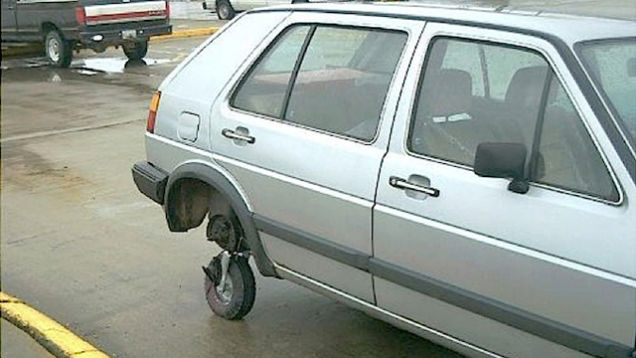
Mon, Aug 29, 2016 4:13 AM
What steps you can take if your car dealer has offered to repair your car, has already attempted to fix it or is refusing to repair your vehicle.
USED CARS FROM THE DEALER
The dealer has offered to repair it
If you decide to let the dealer repair the car, give them a reasonable amount of time to do it. Agreeing to let the dealer repair the car doesn't affect your consumer rights. If it's still not acceptable you can ask for it to be repaired again or replaced. Look at the Sale of Goods Act.
If the repair is going to take some time, you can ask for a courtesy car. If the dealer doesn't provide one, you can ask for compensation for the cost of hiring an equivalent car while yours is being repaired.
You don't have to accept a repair. You can insist on a refund. However, you'd have to reject the car very soon after purchase. The longer it's been since you bought the car, the less likely you'll get all your money back.
You could get the car independently assessed before you decide to let the dealer repair the problem. That could give you a better idea of the extent of the problem, and help you decide if it's better to accept a repair or hold out for a replacement or refund. Both the RAC and the AA do car checks, as do many other independent and accredited garages.
The dealer has already tried repairing it
Agreeing to let the dealer repair the car doesn't affect your rights. If it's still not acceptable you can:
- ask for the vehicle to be repaired again
- request a replacement vehicle, or
- your money back
If the repair hasn't fixed the problem, inform the dealer in writing as soon as possible and say exactly what you want done about it. Send a copy of the letter to the dealer's head office if it's part of a franchise. If you've bought the car on credit, you should also send a copy of the letter to the finance company.
If the repair is going to take some time, you can ask for a courtesy car. If the dealer doesn't provide one, you can ask for compensation for the cost of hiring a car while yours is being repaired.
If the dealer's refusing to fix your car
You can contact Consumer Direct for advice and to make a complaint. They may pass your complaint onto your local Trading Standards office. They can take action if they feel the dealer is not treating you fairly or are trading dishonestly.
You can contact your local Citizens Advice Bureau (CAB) who can offer you advice.
As a last resort you could take the dealer to court.
NEW CARS
If you’re having any trouble with your new car, you need to tell the dealer that you are rejecting the vehicle as soon as you can.
The dealer who sold you the car is the one who is primarily responsible for its quality under the law, not the manufacturer – it is the seller who must sort out any problems.
If there is a manufacturer’s warranty on the car, this is extra protection for you – it doesn’t replace the dealer’s legal responsibility for what they’ve sold.
If you speak to the dealer on the phone, follow up the conversation as soon as you can with a letter so you have a written record of any correspondence.
If you’ve bought the car on a credit agreement arranged by the dealer, send the finance company a copy of all correspondence – in most cases they are equally responsible for the car.
Stop using the car if you can
If you can, you should stop using the vehicle altogether. This is part of the process of rejecting the vehicle. If you carry on using it, the law may take it to mean that you have ‘accepted’ the car. If you stop using the car, you must tell the dealer that you’ve done this. The sooner you reject the car, the better your chances of getting a full refund, a replacement vehicle or a free repair.
If the dealer or finance company is disputing the rejection, then it may be up to you to prove your case. You will need to obtain an independent assessment of the car so you have an official record of the faults. You can then decide to sue for damages.
You’re protected by law
There are laws in place to protect your rights as a consumer, and it’s worth checking with Consumer Direct to see which laws apply to you. One of the most important laws for consumers is The Sale of Goods Act which says any goods sold must be of satisfactory quality, fit for purpose and as described.
This means the vehicle must be in the kind of condition you’d expect. So if it’s a new car, you wouldn’t expect any major faults. To say it must be ‘fit for purpose’ means it must be safe and capable of carrying out the tasks it was sold to do. The car must also be ‘as described’. For example, the dealer isn’t allowed to sell a car advertised as having a 1.8L engine when in fact it’s 1.6L.
It is up to the seller and not the manufacturer to ensure the car meets these standards before selling it. If you think your dealer has sold you a car that is in breach of the law, contact Consumer Direct, they can help you with your complaint and may also pass your complaint on to Trading Standards – it’s their job to enforce consumer legislation.







